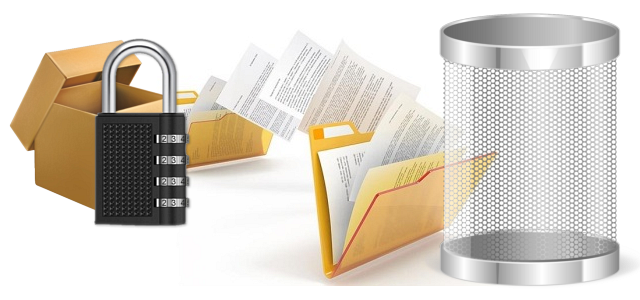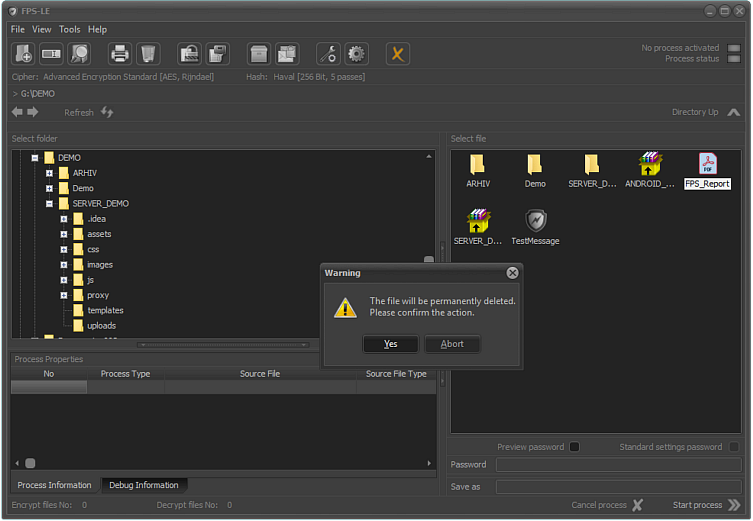LE3.1.1.4
DELETE FILES AND FOLDERS

Standard delete files
Deleting files and folders is required when they become useless or need to free up space on the media on which they are recorded.
This action is performed in the "Select file" field.
The easiest way to delete is by selecting the appropriate file or
folder and pressing the [Delete]
key on the keyboard.
A window appears asking if you are sure you want to delete the file in
question.
When the "Yes" button is
selected, the file is deleted and "No"
remains.

Deleting multiple files at once is done
by selecting any files that should be removed.
Similarly, a folder is deleted. Deleting a folder will delete all the
files and folders that are in the folder.
Permanently delete files
When
you delete your OS Windows files, they are not actually completely
deleted.
This is because it is possible for the user to try to recover them if
they have erased the error.
Even if you use the [Shift+Del] combination, they can be restored.
File Protect System provides the
ability to delete files, as is done by programs known as file
shredders. Standard file deletion only deletes the link to the file
that indicates where it is in the hard disk but is not removed from the
operating system.
In the shredders, the data is permanently deleted by randomly
overwriting information bits in previously occupied sectors of the hard
disk that contained the files in question.
The application uses low-level, hybrid technology. The result of this
type of deletion is to remove the specified files forever, without
anyone being able to find them and use them as a compromising material.
The application allows both individual file removal and entire
information folders containing multiple types of items such as text
documents, spreadsheets, scanned images, etc.

In this case, the information about permanently deleting a file or
folder will be duly documented as a system process.
Note: When you
permanently delete files and folders, system messages are displayed in
a style that matches the style of the application.
Contents